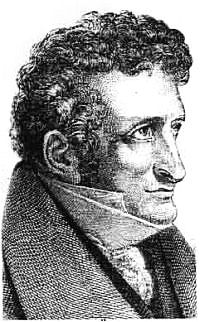Related Research Articles

Tourette syndrome or Tourette's syndrome is a common neurodevelopmental disorder that begins in childhood or adolescence. It is characterized by multiple movement (motor) tics and at least one vocal (phonic) tic. Common tics are blinking, coughing, throat clearing, sniffing, and facial movements. These are typically preceded by an unwanted urge or sensation in the affected muscles known as a premonitory urge, can sometimes be suppressed temporarily, and characteristically change in location, strength, and frequency. Tourette's is at the more severe end of a spectrum of tic disorders. The tics often go unnoticed by casual observers.

Coprolalia is involuntary swearing or the involuntary utterance of obscene words or socially inappropriate and derogatory remarks. The word comes from the Greek κόπρος, meaning "dung, feces", and λαλιά "speech", from λαλεῖν "to talk".
Neuropsychiatry is a branch of medicine that deals with psychiatry as it relates to neurology, in an effort to understand and attribute behavior to the interaction of neurobiology and social psychology factors. Within neuropsychiatry, the mind is considered "as an emergent property of the brain", whereas other behavioral and neurological specialties might consider the two as separate entities. Those disciplines are typically practiced separately.
Societal and cultural aspects of Tourette syndrome include legal advocacy and health insurance issues, awareness of notable individuals with Tourette syndrome, and treatment of TS in the media and popular culture.
Tourette syndrome is an inherited neurodevelopmental disorder that begins in childhood or adolescence, characterized by the presence of motor and phonic tics. The management of Tourette syndrome has the goal of managing symptoms to achieve optimum functioning, rather than eliminating symptoms; not all persons with Tourette's require treatment, and there is no cure or universally effective medication. Explanation and reassurance alone are often sufficient treatment; education is an important part of any treatment plan.
Causes and origins of Tourette syndrome have not been fully elucidated. Tourette syndrome is an inherited neurodevelopmental disorder that begins in childhood or adolescence, characterized by the presence of multiple motor tics and at least one phonic tic, which characteristically wax and wane. Tourette's syndrome occurs along a spectrum of tic disorders, which includes transient tics and chronic tics.
The Tourette Association of America (TAA), based in Bayside, New York, United States, is a non-profit voluntary organization and the only US health-related organization serving people with Tourette syndrome. It was founded in 1972 as the Tourette Syndrome Association (TSA), later changing its name.

Tourette syndrome (TS) is an inherited neurological disorder that begins in childhood or adolescence, characterized by the presence of multiple physical (motor) tics and at least one vocal (phonic) tic.
Kenneth Blum is an American scientist who has studied neuropsychopharmacology and genetics. Until 1995 he was a professor of pharmacology at the University of Texas Health Science Center at San Antonio.

The Gene Bomb is a 1996 book by David E. Comings, self-published by Hope Press, that puts forth the theory that higher education and advanced technology may unintentionally favor the selection of genes that increase the likelihood of ADHD, autism, drug addiction, learning disorders, and behavior problems. Comings claims that the prevalence of these disorders is rising and I.Q. is decreasing; others argue that other factors may be responsible, including increased detection of these disorders. He claims that society is inadvertently creating delays for the highly educated that reduce their reproductivity and causes them to have children later in life, thus raising the odds of certain disorders like autism. On the other hand, he claims that those having learning disorders tend to drop out of school earlier and have more children, thus passing on learning disorders at a higher rate. Environmental and societal factors are usually accepted as the cause, but Comings argues the opposite.

Robert T. Gerlai is a Canadian behaviour geneticist and behavioural neuroscientist.

Jay Tischfield is MacMillan Distinguished Professor and the Founding Chair of the Department of Genetics at Rutgers University. He is also Professor of Pediatrics and Psychiatry at Rutgers. He is currently Director of the Human Genetics Institute of New Jersey.

Ecopipam is a dopamine antagonist which is under development for the treatment of Lesch-Nyhan syndrome, Tourette syndrome, speech disorders, and restless legs syndrome. It is taken by mouth.

Huda Yahya Zoghbi is a Lebanese-born American geneticist, and a professor at the Departments of Molecular and Human Genetics, Neuroscience and Neurology at the Baylor College of Medicine. She is the director of the Jan and Dan Duncan Neurological Research Institute. She was the editor of the Annual Review of Neuroscience from 2018-2024.
James Frederick Leckman is an American child psychiatrist and psychoanalyst and the Neison Harris Professor of Child Psychiatry, Psychiatry, Psychology and Pediatrics at the Yale School of Medicine, recognized for his research in Tourette syndrome (TS) and obsessive–compulsive disorder (OCD).

John M. Opitz was a German-American medical geneticist and professor at the University of Utah School of Medicine. He is best known for rediscovering the concept of the developmental field in humans and for his detection and delineation of many genetic syndromes, several now known as the "Opitz syndromes" including Smith–Lemli–Opitz syndrome (SLOS), Opitz–Kaveggia syndrome (FGS1), Opitz G/BBB syndrome, Bohring–Opitz syndrome, and other autosomal and X-linked conditions. He is founder of the Wisconsin Clinical Genetics Center, the American Journal of Medical Genetics, and was a cofounder of the American College and American Board of Medical Genetics.
John Piacentini, PhD, ABPP, is an American clinical child and adolescent psychologist, and professor of psychiatry and biobehavioral sciences at the David Geffen School of Medicine at UCLA in Los Angeles, California. He is the director of the Center for Child Anxiety, Resilience, Education and Support (CARES), and the Child OCD, Anxiety and Tic Disorders Program at UCLA's Semel Institute for Neuroscience and Human Behavior.
Wendy K. Chung is an American clinical and molecular geneticist and physician. She is the Chair of the Department of Pediatrics at Boston Children's Hospital and is on the faculty at Harvard Medical School. She is the author of 700 peer-reviewed articles and 75 chapters and has won several awards as a physician, researcher, and professor. Chung helped to initiate a new form of newborn screening for spinal muscular atrophy which is used nationally and was among the plaintiffs in the Supreme Court case which banned gene patenting.
Richard J. Rose is an American psychologist and behavioral geneticist. He is Emeritus Professor of Psychological & Brain Sciences at Indiana University Bloomington and of Medical & Molecular Genetics at the Indiana University School of Medicine. He is also a visiting professor at the University of Helsinki in Finland. He received his Ph.D. from the University of Minnesota in 1964, where he was advised by David T. Lykken. A founding member of the Behavior Genetics Association, he served as its president in 1999 and received its Dobzhansky Award in 2007. He is known for his research using twins to study human behavioral traits such as alcoholism and IQ. This included working as a consultant on the Minnesota Study of Twins Reared Apart in the 1970s. He began collaborating with scientists at the University of Helsinki in 1984, and received an honorary doctorate from this university in 2009.
Michael S. Okun is an American neurologist, neuroscientist and author. He is the co-founder and director of the Norman Fixel Institute for Neurological Diseases at University of Florida Health and is also the chair of the Department of Neurology at the University of Florida and the Medical Director/Advisor for the Parkinson's Foundation. He is the fifth person at the University's College of Medicine to hold the rank of Distinguished Professor.
References
- ↑ "Dr. David Comings Bio". The Comings Foundation. Retrieved 2019-01-07.
- ↑ "Comings, David E." Library of Congress Name Authority File. Library of Congress . Retrieved 2019-01-07.
- 1 2 3 "Issue". The American Journal of Human Genetics . 2015-04-02.
- ↑ "David E. Comings 1935-". Oxford Dictionary of Scientific Quotations. Oxford University Press. 2006. ISBN 978-0-19-861443-2 . Retrieved 2017-12-15.
- 1 2 Gorner, Peter (1989-01-15). "Tourette Theory In Hot Dispute". Chicago Tribune . Retrieved 2017-12-15.
- ↑ "David Comings". American Society for Clinical Investigation . Retrieved 2017-12-15.
- ↑ Horacek, H. Joseph (1998). Brainstorms: Understanding and Treating the Emotional Storms of Attention Deficit Hyperactivity Disorder from Childhood Through Adulthood. Jason Aronson. p. 30. ISBN 978-0-7657-0080-3.
- ↑ Noble, Holcomb B. (1999-03-02). "New From the Smoking Wars: Success". The New York Times . ISSN 0362-4331 . Retrieved 2017-12-15.
- ↑ SCOTT, JANNY (1991-10-02). "Study Supports Genetic Link to Alcoholism". Los Angeles Times . ISSN 0458-3035 . Retrieved 2017-12-15.